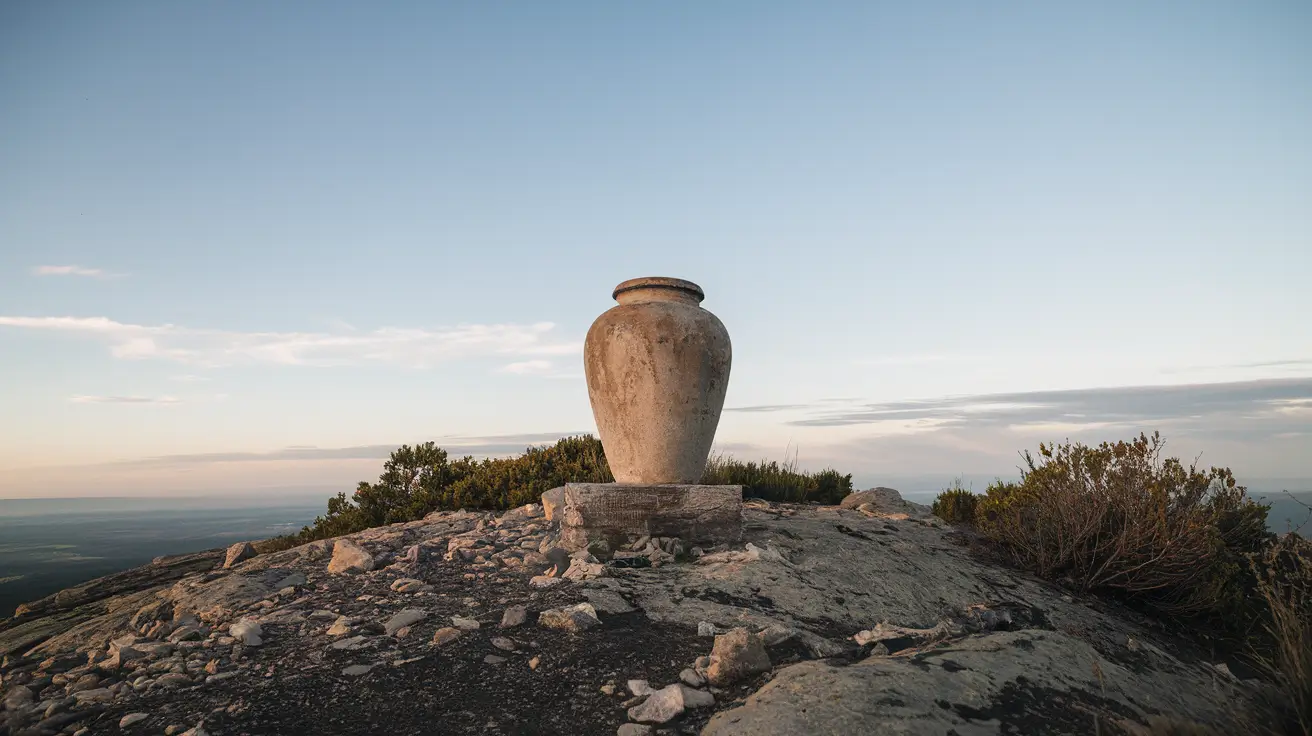- Friday, December 6, 2024
Cremation vs. Burial: Which Option Is Right for You?
Choosing between cremation and burial is a deeply personal decision that carries significant emotional, cultural, and financial implications. As you navigate this important choice, understanding the nuances of each option can help you make an informed decision that aligns with your values, beliefs, and wishes. This guide explores the key aspects of cremation and burial, […]
Choosing between cremation and burial is a deeply personal decision that carries significant emotional, cultural, and financial implications. As you navigate this important choice, understanding the nuances of each option can help you make an informed decision that aligns with your values, beliefs, and wishes. This guide explores the key aspects of cremation and burial, providing you with the information needed to determine which option is right for you or your loved one.
Understanding Cremation
Cremation involves the process of reducing a body to its basic elements through high-temperature burning, typically carried out in a crematorium. The remains, often referred to as ashes, are then returned to the family for various forms of disposition. Cremation offers a range of possibilities for memorialization, allowing for flexibility in how you choose to honor the deceased. From keeping the ashes in an urn, scattering them in a meaningful location, or incorporating them into memorial objects like jewelry or artwork, cremation provides diverse ways to celebrate a loved one’s life.
Exploring Burial
Burial, on the other hand, involves placing the body in a casket and interring it in a cemetery plot. This traditional method of disposition has been practiced for centuries and often aligns with religious and cultural customs. Burial provides a physical location where family and friends can visit, pay their respects, and remember the deceased. The choice of burial allows for the establishment of a lasting memorial site, such as a graveside monument or headstone, which can serve as a place of reflection and remembrance for generations to come.
Financial Considerations
One of the primary factors influencing the decision between cremation and burial is cost. Generally, cremation tends to be less expensive than traditional burial. The costs associated with cremation include the cremation fee, which can range from $500 to $3,000, and the price of an urn, typically between $100 and $1,000. In contrast, burial costs encompass several components, including the purchase of a casket, which can range from $1,000 to over $10,000, a cemetery plot costing between $1,000 and $4,000, and additional expenses for a headstone or marker. Additionally, burial may involve fees for opening and closing the grave, which can further increase the overall cost. For those mindful of their budget, cremation offers a more affordable alternative without compromising the ability to honor a loved one meaningfully.
Cultural and Religious Considerations
Cultural and religious beliefs play a significant role in the decision between cremation and burial. Many religions have specific doctrines regarding the disposition of the body. For example, traditional Christian practices often favor burial as a means of respecting the sanctity of the body, while Hinduism and Buddhism typically embrace cremation as a way to release the soul from the physical form. It is essential to consider these beliefs and consult with religious leaders or community members to ensure that the chosen method aligns with spiritual practices and honors the deceased’s faith.
Environmental Impact
Environmental considerations are increasingly influencing the choice between cremation and burial. Cremation is often viewed as more environmentally friendly compared to traditional burial, which involves the use of land, embalming chemicals, and non-biodegradable caskets. However, cremation itself consumes significant energy and releases carbon emissions. For those seeking an eco-friendly option, alternatives such as green burials, which forgo embalming and use biodegradable materials, or natural cremation methods that minimize environmental impact, may be appealing. Assessing the environmental footprint of each option can guide individuals toward choices that reflect their commitment to sustainability and ecological responsibility.
Personal Preferences and Legacy
Personal preferences and the desire to leave a lasting legacy are also crucial factors in deciding between cremation and burial. Cremation offers unparalleled flexibility in memorialization, allowing families to create personalized tributes that reflect the unique personality and passions of the deceased. Whether through scattering ashes in a favorite location, creating memorial art, or holding a virtual remembrance service, cremation supports diverse and creative ways to celebrate life. Conversely, burial provides a tangible place for remembrance, fostering a sense of continuity and tradition. The choice between having a dedicated memorial site versus a more fluid and adaptable form of remembrance ultimately depends on what feels most meaningful to the individual and their loved ones.
Legal Considerations
Legal requirements and regulations surrounding cremation and burial vary by region and must be carefully considered. Cremation typically requires specific permits and adherence to stringent guidelines to ensure respectful and lawful handling of the remains. Burial, too, involves legal processes related to the purchase of cemetery plots, the use of land, and compliance with local ordinances. Consulting with funeral directors and understanding the legal framework in your area can help ensure that all procedures are followed correctly, regardless of the chosen method.
Making the Right Choice
Deciding between cremation and burial involves weighing various factors, including financial implications, cultural and religious beliefs, environmental impact, personal preferences, and legal considerations. It is essential to engage in open and honest conversations with family members, consult with funeral professionals, and reflect on what honors the memory of the deceased most appropriately. Whether you choose the flexibility and affordability of cremation or the tradition and permanence of burial, the most important aspect is to make a choice that brings comfort and honors the life lived.
In Conclusion
The decision between cremation and burial is a significant one, laden with emotional and practical considerations. By understanding the differences, benefits, and implications of each option, you can make a thoughtful and informed choice that respects the wishes of your loved one and provides solace during a time of loss. Ultimately, whether through the intimate and versatile nature of cremation or the enduring tradition of burial, what matters most is the meaningful tribute you create to honor and remember a cherished life.
More Posts
No results available









